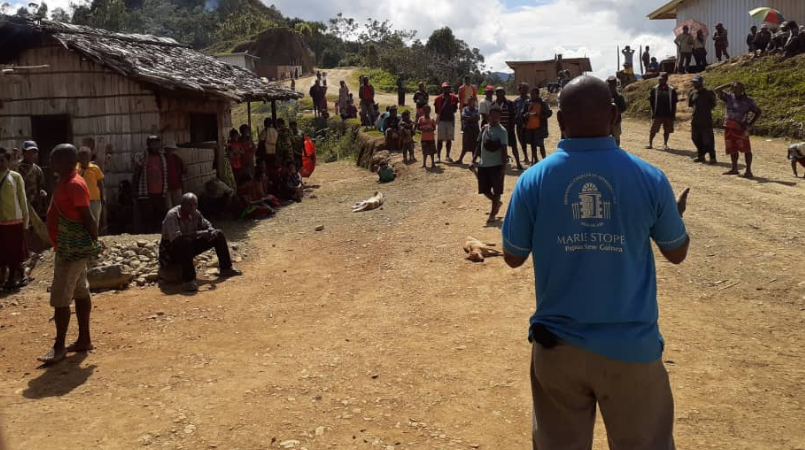
More than 40,000 women in Morobe have benefited from Marie Stopes PNG (MSPNG) family planning outreaches in 2020, supporting women, girls, and men to make informed decisions about reproductive health.
The outreaches provide contraceptive education, information and services for women and girls, which can have significant health, societal and economic benefits.
One beneficiary was 26-year-old Sarah Greg who attended a temporary Marie Stopes clinic set up near Wampar Health Centre in Huon District.
Despite being new to family planning, Sarah was no stranger to the hardship of having too many children.
“I come from a large family. Watching my mother struggle to care for my siblings, and it made me realise I do not want the same life,” she said.
Outreach patrols are a collaboration between the National Department of Health and MSPNG supported by the Papua New Guinea–Australia Partnership to provide access to clinical services in hard to reach and rural areas.
Outreach teams are comprised of both experienced clinical and health promotion staff, including people from local communities.
Like most women in the rural village, Sarah’s days revolve around house chores, gardening and travelling to Wampar to sell her fresh produce.
She first learnt about Marie Stopes’ family planning services from a community-based mobiliser named Martha who was going door to door in her village talking about family planning.
“I met Martha along the way to the garden and we discussed the different family planning methods,” Sarah said.
“She told me there would be a Marie Stopes clinic offering free family planning services.
“My village is within walking distance, so I am fortunate. Other ladies have to travel for hours just to come sell their produce at the market or get medical help.”
Providing women with access to contraception means they can make informed decisions about their future, help support families and make greater community contributions.
Girls who have access to contraception may choose to stay in school, pursue higher education and are more likely to participate in the formal economy.
For families, contraception can mean fewer mouths to feed and school fees to pay, and more attention for older children.
As a first-time mum to a one-year old boy, Sarah wants to wait before having more children.
“My husband and I had already discussed the number of children we would like to have before getting married,” she said.
“As we had hoped, I got pregnant and had our first child in 2019. And now we want to wait a couple more years before expanding our family.”
After consultation with the Marie Stopes nurse, Sarah decided to take up a contraceptive implant – a family planning method that prevents unplanned pregnancy for up to five years.
With support from the Papua New Guinea-Australia Partnership, Marie Stopes PNG is providing family planning education and access to women like Sarah who live in the rural and remote areas of the country.
Photo courtesy: MSPNG
